Why Hawaii's false alarm should be a massive wake-up call for us all
Is President Trump going to get us all killed?
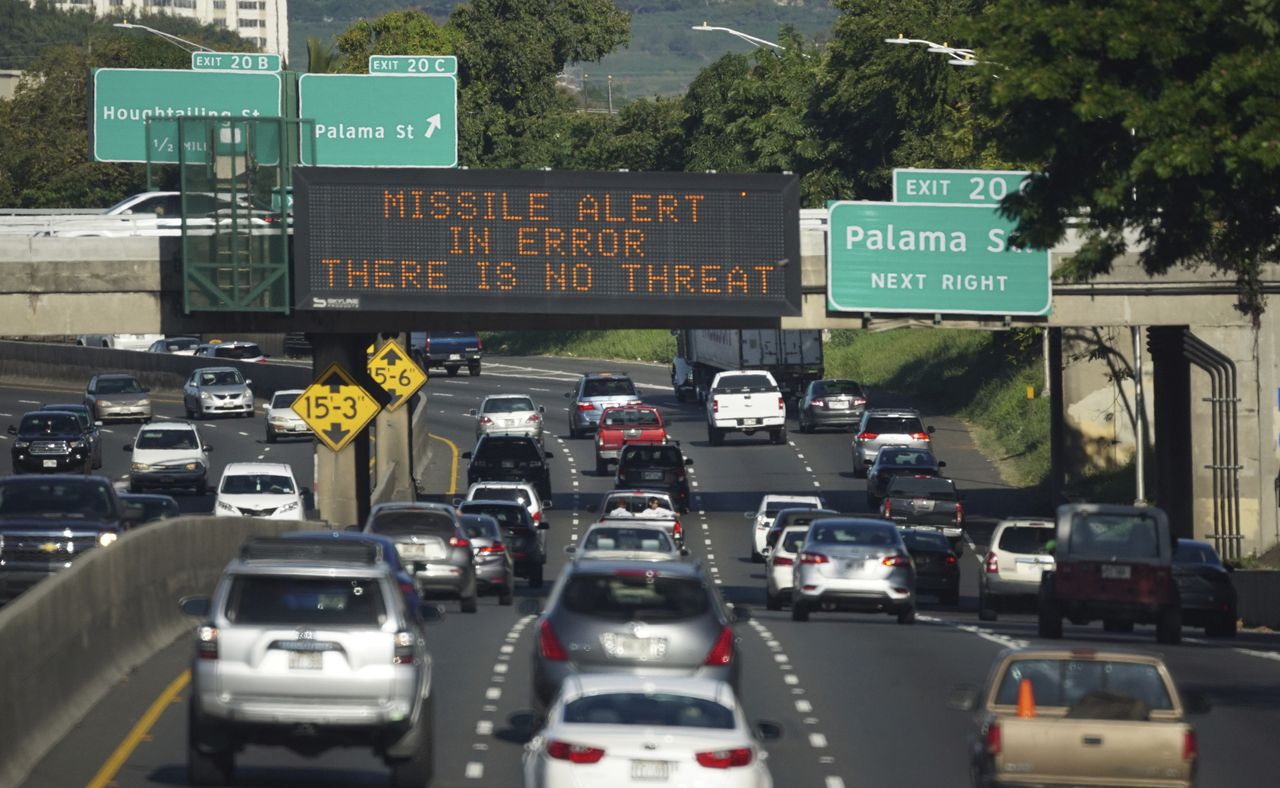

For 38 minutes on Saturday, Hawaiians experienced the very worst sort of nightmare, after a state agency inadvertently sent out a message that a ballistic missile was inbound. "Seek shelter immediately. This is not a drill," read the terrifying alert that Hawaiians received on their phones and TVs. Distraught residents and visitors did their best to find safety and send tearful final messages to loved ones before the alert was retracted.
President Trump, who was out golfing at the time, made a minor public statement about the false alarm, calling it a "state thing" and saying he loved "that they took responsibility." He then resumed pouring kerosene on the "shithole-gate" inferno, making up childish new names for United States senators, torpedoing a bipartisan immigration bill, and blaming everything on the Democrats.
Maybe that's for the best. Saturday's incident was precisely the sort of executive-function-testing fiasco you could see him having difficulty grappling with. Imagine if, instead of chasing golf balls in Florida when the missile alert when out, The Least Racist Person You've Ever Interviewed had been beached in front of his television on a Tuesday, watching Fox & Friends, wiping french fry grease on his shirt, and barking for the nuclear football to be brought to him along with some cherry and strawberry Starbursts. He would likely be trying fruitlessly to load Twitter on his doomsday plane in the poisoned stratosphere. The rest of us might be dead.
Subscribe to The Week
Escape your echo chamber. Get the facts behind the news, plus analysis from multiple perspectives.

Sign up for The Week's Free Newsletters
From our morning news briefing to a weekly Good News Newsletter, get the best of The Week delivered directly to your inbox.
From our morning news briefing to a weekly Good News Newsletter, get the best of The Week delivered directly to your inbox.
And while it wasn't the president's fault that a state employee created an international panic, nor is he the original author of the Korea standoff, there is no question that the unhinged rhetoric and empty threats emanating from his Twitter account have heightened tensions and increased the risk of accidental calamity. Had the Trump administration spent the past year soberly assessing the threat from North Korea's ballistic missile program and working to decrease tensions instead of allowing the nominal president to send out a series of lunatic missives casually threatening nuclear annihilation, it is unlikely that anyone in Hawaii would have taken the alert as seriously as they did. But the Trump administration's unimaginably irresponsible behavior has put everyone rightly on edge.
The mayhem in Hawaii also raised the specter of an accidental nuclear war, long one of the greatest fears of nuclear abolitionists and arms control enthusiasts. While these incidents have largely disappeared down the Cold War memory hole, the history of the nuclear age is replete with near-misses, including one incident in 1961 in which a nuclear-armed B-52 broke apart in mid-flight over North Carolina, releasing its nuclear payload in the process. Multiple "fail-safe" systems failed on two massive thermonuclear bombs and disaster was narrowly averted.
In 1979, National Security Adviser Zbigniew Brzezinski was awakened suddenly at three in the morning to the news that the Soviets had launched 250 missiles at the United States. Nuclear bombers were put on alert, fighter jets were flung into action, and the president's command-and-control plane was rushed into the air. Apparently a North American Aerospace Defense Command (NORAD) employee had inserted a simulation tape and tricked the entire system into believing that a massive Soviet ICBM strike was inbound.
"For a few frightening minutes, the U.S. military got ready for a nuclear war," writes Scott Sagan, whose 1993 book The Limits of Safety walked readers through a terrifying litany of nuclear near-misses and argued that our command-and-control systems are not as infallible as we think they are. That a lone Hawaii state employee was able to set off this kind of panic should be sobering to those who blithely maintain that nuclear war could never happen unintentionally or that our systems have become immune to human error.
The weekend's throwback Cold War nuclear panic should also lead us to question the president's blasé attitude about nuclear weapons in general. Not only has President Trump spent much of his first year dangerously stoking tensions with his imbecilic counterpart in Pyongyang, but his night-shift government of ex-military minders seems set to undo decades of American policy by endorsing a new nuclear buildup.
If leaked drafts of the forthcoming Nuclear Posture Review are to be believed, the Trump administration recommends building more "low-yield" nuclear weapons, of the sort that a certain flavor of D.C. maniac has always believed could be used on the battlefield as part of a "limited" nuclear war. Despite already having a thousand-deep stack of these unnecessary and unusable weapons, the Trump brain trust, which still can't convince Congress to find the money for children's health insurance, believes that we need an expensive arms race.
This is exactly the wrong signal to send to other countries who are looking to the United States for leadership in this arena. The Non-Proliferation Treaty (NPT) was created on the premise that reducing the number of nuclear-armed countries in the world, as well as the overall number of weapons, would dramatically decrease the risk of both intentional and accidental hellfire. The many countries who agreed not to pursue nuclear weapons also placed implicit faith in great powers like the United States to behave responsibly with their civilization-threatening toys and to avoid destabilizing threats that might lead to proliferation cascades or war. This is exactly the unspoken compact that the president has repeatedly and carelessly violated.
Apart from the risk of global annihilation, expanding America's nuclear arsenal would be a massive and pointless incineration of national wealth. Studies estimate that the United States has spent about $1 trillion a decade designing, building, and maintaining its nuclear weapon inventory, most of which has always been completely unnecessary. That's enough money for every man, woman, and child in America to have their very own fallout shelter the next time someone hits the wrong button or sends an ill-conceived tweet. So instead of urging him to light the fortunes of future generations on fire building weapons no one wants or needs, the president's babysitters would do well to get the message through to him — via Sean Hannity or Brian Kilmeade or perhaps scribbled on the back of a Quarter Pounder wrapper — that his idiotic behavior is endangering us all.
Sign up for Today's Best Articles in your inbox
A free daily email with the biggest news stories of the day – and the best features from TheWeek.com
David Faris is an associate professor of political science at Roosevelt University and the author of It's Time to Fight Dirty: How Democrats Can Build a Lasting Majority in American Politics. He is a frequent contributor to Informed Comment, and his work has appeared in the Chicago Sun-Times, The Christian Science Monitor, and Indy Week.
-
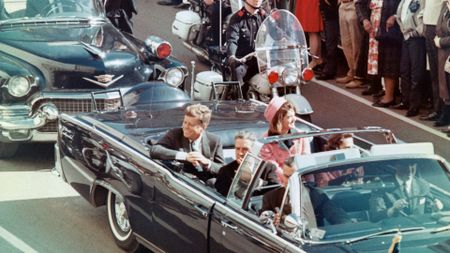 The JFK files: the truth at last?
The JFK files: the truth at last?In The Spotlight More than 64,000 previously classified documents relating the 1963 assassination of John F. Kennedy have been released by the Trump administration
By The Week Staff Published
-
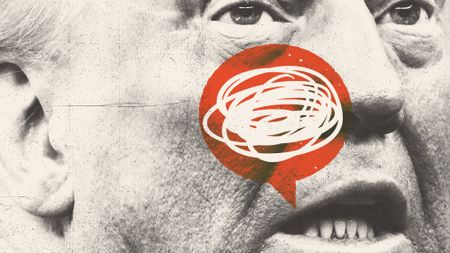 'Seriously, not literally': how should the world take Donald Trump?
'Seriously, not literally': how should the world take Donald Trump?Today's big question White House rhetoric and reality look likely to become increasingly blurred
By Sorcha Bradley, The Week UK Published
-
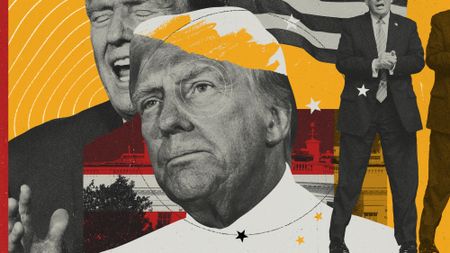 Will Trump's 'madman' strategy pay off?
Will Trump's 'madman' strategy pay off?Today's Big Question Incoming US president likes to seem unpredictable but, this time round, world leaders could be wise to his playbook
By Sorcha Bradley, The Week UK Published
-
 Democrats vs. Republicans: who are the billionaires backing?
Democrats vs. Republicans: who are the billionaires backing?The Explainer Younger tech titans join 'boys' club throwing money and support' behind President Trump, while older plutocrats quietly rebuke new administration
By Harriet Marsden, The Week UK Published
-
 US election: where things stand with one week to go
US election: where things stand with one week to goThe Explainer Harris' lead in the polls has been narrowing in Trump's favour, but her campaign remains 'cautiously optimistic'
By Harriet Marsden, The Week UK Published
-
 Is Trump okay?
Is Trump okay?Today's Big Question Former president's mental fitness and alleged cognitive decline firmly back in the spotlight after 'bizarre' town hall event
By Harriet Marsden, The Week UK Published
-
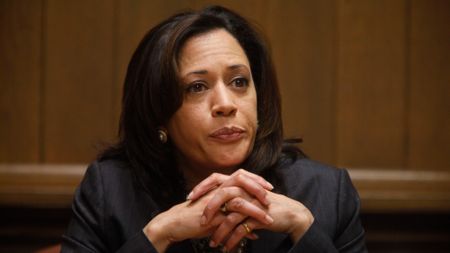 The life and times of Kamala Harris
The life and times of Kamala HarrisThe Explainer The vice-president is narrowly leading the race to become the next US president. How did she get to where she is now?
By The Week UK Published
-
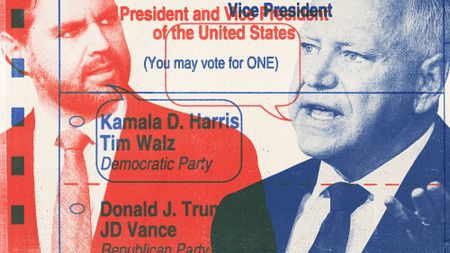 Will 'weirdly civil' VP debate move dial in US election?
Will 'weirdly civil' VP debate move dial in US election?Today's Big Question 'Diametrically opposed' candidates showed 'a lot of commonality' on some issues, but offered competing visions for America's future and democracy
By Harriet Marsden, The Week UK Published



